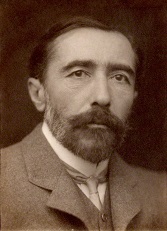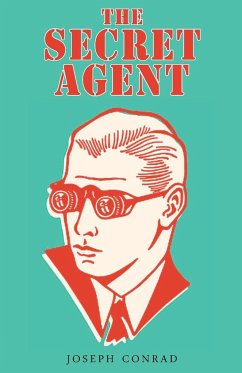
The Secret Agent
Versandkostenfrei!
Versandfertig in 1-2 Wochen
18,99 €
inkl. MwSt.

PAYBACK Punkte
9 °P sammeln!
The Secret Agent: A Simple Tale is a novel by Joseph Conrad, first published in 1907.[1] The story is set in London in 1886 and deals with Mr. Adolf Verloc and his work as a spy for an unnamed country (presumably Russia). The Secret Agent is one of Conrad's later political novels in which he moved away from his former tales of seafaring. The novel is dedicated to H. G. Wells and deals broadly with anarchism, espionage, and terrorism. It also deals with exploitation of the vulnerable in Verloc's relationship with his brother-in-law Stevie, who has an intellectual disability. Conrad's gloomy por...
The Secret Agent: A Simple Tale is a novel by Joseph Conrad, first published in 1907.[1] The story is set in London in 1886 and deals with Mr. Adolf Verloc and his work as a spy for an unnamed country (presumably Russia). The Secret Agent is one of Conrad's later political novels in which he moved away from his former tales of seafaring. The novel is dedicated to H. G. Wells and deals broadly with anarchism, espionage, and terrorism. It also deals with exploitation of the vulnerable in Verloc's relationship with his brother-in-law Stevie, who has an intellectual disability. Conrad's gloomy portrait of London depicted in the novel was influenced by Charles Dickens' Bleak House. The novel was modified as a stage play by Conrad himself and has since been adapted for film, TV, radio and opera. Because of its terrorism theme, it was one of the three works of literature most cited in the American media two weeks after the September 11 attacks.















